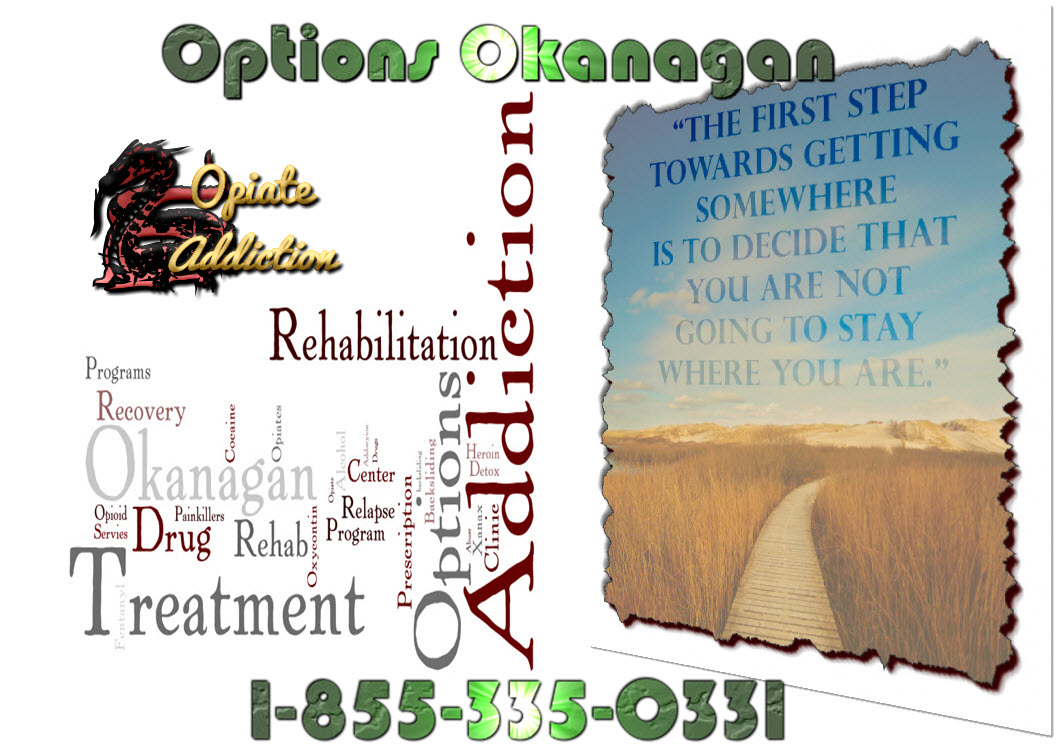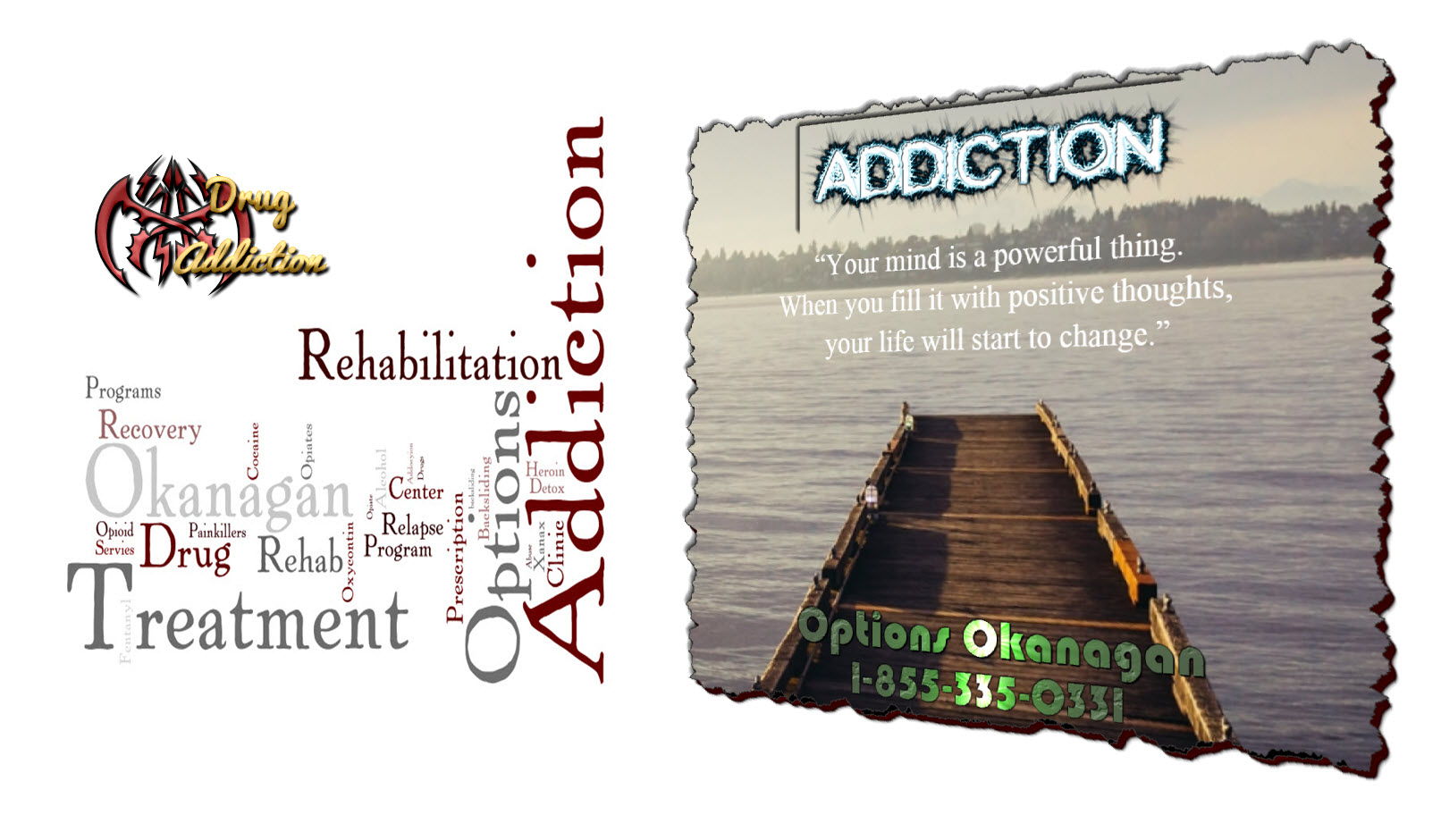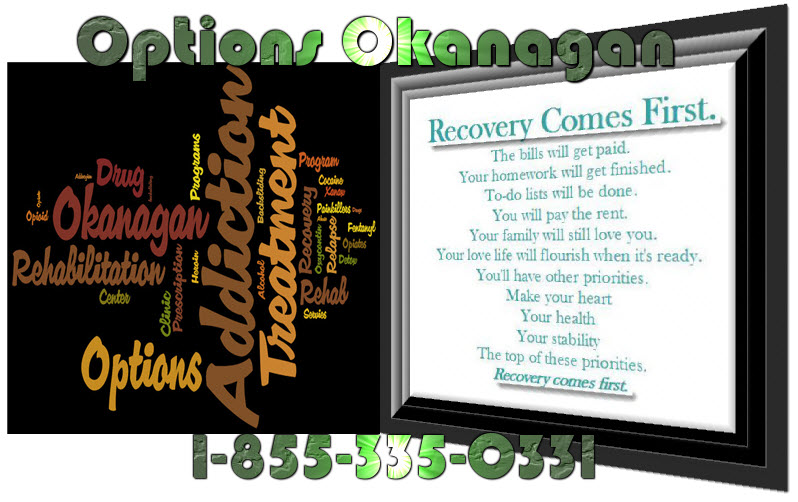What you really need to know about Painkiller Addiction in Vancouver, Victoria and Kelowna, British Columbia by Options Okanagan Treatment Center in Kelowna, British Columbia treating Opiate and Painkiller addiction and recovery.
There are many times in a person’s life that they may need to take painkillers. However, everyone needs to know the hazards associated with these drugs. For example taking over the amount of prescribed medication will not help alleviate the pain any faster.
What You Need To Know
Certain opiate-based painkiller like Oxycontin and Vicodin are known for being addictive. These types of drugs should only be used for short-term pain relief under medical supervision.
Taking painkillers seems to be the obvious choice when a person is in pain. They tend to relieve discomfort within minutes and can be very effective on chronic conditions such as arthritis. However, over the last few decades the abuse of painkillers has become prevalent in society and some popular myths keep showing up as a result. This article is designed to debunk those myths and show you the truth about excessive painkiller use.
Myth: The more of a painkiller you take the better and faster it will deal with pain and not cause any adverse reactions.
Fact: In truth the less of a painkiller you take the longer it tends to work in the body. While it may work during the early stages of using the drug, the body will quickly build up a tolerance making the drug less effective. Even if the dosage keeps getting higher the response to the drug will still be limited. The higher dose of a drug that is ingested can lead to even more serious side effects.
Myth: Painkillers go after the root of the problem and provide relief from pain.
Fact: A painkiller is actually designed to only conceal the amount of pain you may be feeling but does nothing for the actual cause of the pain. For example, painkillers like morphine will only prevent the pain signals from reaching the brain. They are designed to act on the brain and allow the individual to live pain-free. Other painkillers like ibuprofen and acetaminophen are designed to reduce the amount of secretions from various enzymes that cause pain.
Myth: Painkillers are not designed to be addictive so it is fine to take as many medications as desired.
Fact: When painkillers are misused it brings an increase in the risk of drug addiction. Whether it is opioid or non-opioid prescriptions, they should only be taken under the care of a physician. By not following the dosage or taking the medication as prescribed there is a much higher risk of addiction. For example taking a higher dosage for longer than the prescribed duration can lead to an addiction problem Likewise, taking any type of medication without consulting a physician can not only be dangerous but deadly as well.
Myth: Taking painkillers for an extended time period is not dangerous.
Fact: Taking painkiller for an extended amount of time to manage pain is not an advisable routine. There have been various studies that have shown how harmful this habit can be to the health. It is much better to use painkiller for short-term management of pain. People who suffer from chronic ailments like arthritis will generally take high doses of painkillers for longer periods of time. However, the use of painkillers for an extended time period has been shown to lead to cardiovascular problems. Regardless of the health risks associated with long-term painkiller use, it can also lead to dependency and reduce the pain tolerance.
Myth: Since there is a danger in painkiller addiction, these medicines should be avoided at all costs.
Fact: The actual painkillers are not dangerous, it is the amount of time a person takes them that can lead to dangerous situations. Serious injuries and medical conditions require the use of painkillers. If you feel as though you can no longer deal with the pain, these medications can be quite helpful. However, these medications should only be taken on a short-term basis with a physician’s approval.
Myth: A painkiller addiction is not serious as physicians can easily treat these addictions.
Fact: This is perhaps one of the most serious myths that is going around right now and it needs to be debunked once and for all. Physicians do not have all the answers when it comes to treating an addiction. Typically an individual will need to join a rehabilitation center to get the addiction under control. A specialist will be needed to provide counselling to help de-addict the patient.
Myth: The effects of withdrawal typically indicate an addiction problem.
Fact: Just because a person experiences withdrawal symptoms does not mean they are addicted. It is important not to confuse drug dependency with addiction. While painkillers can cause physical dependency, an individual may not show signs of addiction. An addiction is classified as a brain disorder that is chronic and the person is psychologically dependent on the medication and it is affecting their health. The individual craves the drug and will do anything to get it, even if it is violent and dangerous. While withdrawal symptoms are not as overpowering, however, a physician’s help may be needed to discontinue use of the drug.
Options Okanagan Opiate and Alcohol Treatment Centers in Kelowna, Salmon Arm and Vancouver, British Columbia – Men and Women are recovering and healing from Alcohol and Drug Abuse at our treatment center here in the Okanagan right now.
Our unique and distinctive Opiate Drug and Alcohol treatment program allows men and women to come in from Calgary as well as Edmonton as we offer airport pickup.
Numerous clients come to us from Calgary and Edmonton and other locations in Alberta and even other provinces for Opiate addiction treatment, meth drug treatment, many other drug and alcohol addictions for rehabilitation because of the uniqueness of our treatment center.
Our Treatment Location:
Options Okanagan Opiate Treatment Center
551 Sherrydale Crescent, Kelowna, British Columbia, V1V 2E6
Toll Free Phone Number : 1-855-335-0331






